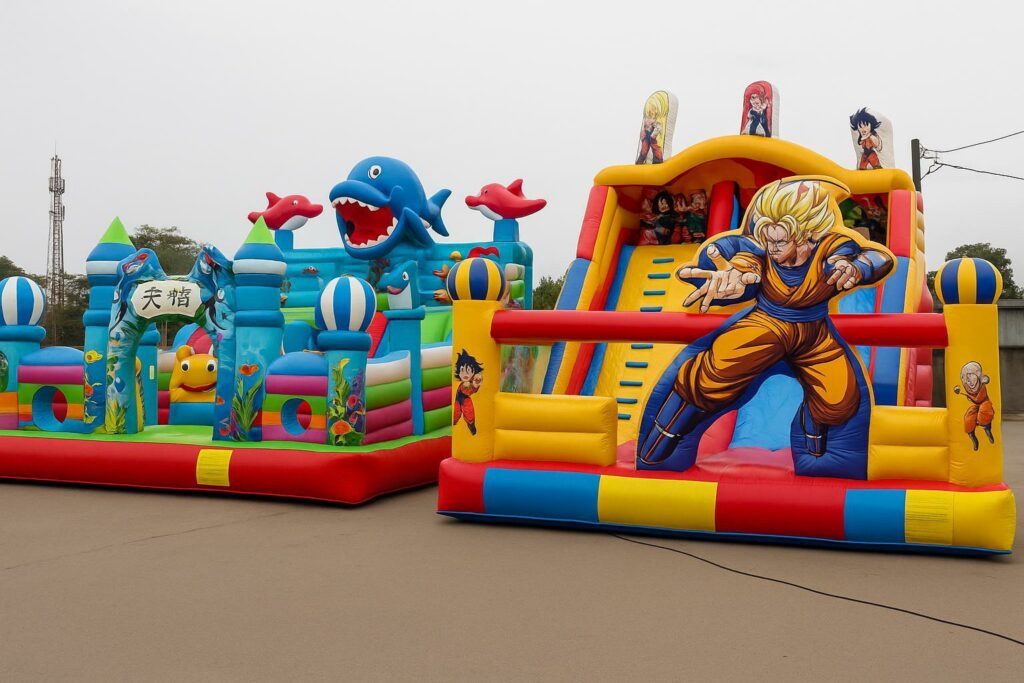Social Fabric and Child Welfare in Pointe-Noire
When schools across the Republic of the Congo ring the final bell in late July, educators, parents and municipal officials share a common concern: ensuring that holiday freedom does not drift into idleness or unsafe pastimes. In recent years, Pointe-Noire has multiplied programmes that strengthen the social fabric around children, from the Ministry of Social Affairs’ neighbourhood sports camps to UNICEF-supported reading clubs. Against this backdrop, the Association of Young Mothers of Congo, chaired by entrepreneur and philanthropist Michaelle Moutouari Tchicamboud, inaugurated a seasonal amusement park on 23 August inside the grounds of Tié-Tié’s city hall. The timing, wedged between the national remobilisation for the new academic year and the dense agenda of Independence celebrations, has lent the project both visibility and practical resonance.
From Civic Space to Leisure Hub
The austere modernist forecourt of the third arrondissement’s city hall now bursts with colour: inflatable castles billow in the Atlantic breeze, trampolines wink under the equatorial sun, and winding soft-wall labyrinths challenge the spatial imagination of five-year-olds. By day the area resembles a miniature fairground; by dusk string lights re-interpret the façade into a stage where local musicians alternate lullabies with Congolese rumba standards. The transformation illustrates an emerging urban planning trend in Central Africa, whereby civic precincts double as temporary leisure hubs, maximising land use without compromising administrative functions. Municipal staff interviewed on site describe the collaboration as “a laboratory of conviviality” that could inspire similar projects in Brazzaville’s arrondissements or in the oil towns of Kouilou.
Public Reception and Parental Perspectives
Attendance figures are modest by metropolitan standards yet significant for a district whose demography is largely working-class. Organisers report a daily footfall oscillating between 200 and 400 children, a number confirmed by municipal police assigned to crowd management. Nine-year-old Lionel, helmet tucked under his arm after a trampoline session, confides, “Here I feel like I travel without leaving Pointe-Noire.” His father, an offshore technician frequently on rotation, praises the predictable routine: “My son finishes homework at noon, then comes here under the supervision of trained monitors. It is peace of mind for the entire household.” Local educators echo that sentiment, noting a decline in unsupervised street football and informal video-game parlours since the park opened.
Civil Society, Governance and Soft Power
The Pointe-Noire initiative dovetails with the national child-protection strategy outlined in the 2022–2026 Plan National de Développement, which places strong emphasis on public-private partnerships. While the park is financed primarily through voluntary contributions channelled by the AJMC, logistical backing from the mayor’s office—waiving rental fees, providing electricity and deploying security staff—signals a pragmatic form of collaborative governance. Diplomats stationed in Brazzaville often cite such micro-projects as evidence of the government’s willingness to incubate bottom-up solutions that complement state programmes. A senior official at the Ministry of Youth and Civic Education contends that “societal resilience is built on these granular alliances where civil society acts as a force multiplier rather than a substitute for public action.”
Potential for Sustainable Youth Engagement
Set to conclude in early September, the amusement park is by design ephemeral, yet discussions are advancing on how to extend its impact. Ms Moutouari Tchicamboud has hinted at a travelling format that could tour semi-rural districts during school terms, reinforcing access equity across the Kouilou department. Corporate sponsors from the hydrocarbons sector, attentive to social-licence concerns, are reportedly considering in-kind support such as safety equipment and first-aid training for volunteer supervisors. Urban sociologists argue that, if institutionalised, the model could serve as a cost-effective complement to more capital-intensive youth centres.
Looking Beyond the Holiday Season
As the final notes of evening rumba fade over Tié-Tié, the laughter of children reverberates against the city hall’s walls—a sonic reminder that leisure, when thoughtfully curated, constitutes both a right and a strategic investment. Whether the initiative evolves into a perennial fixture or remains a cherished summer memory will depend on sustained multi-stakeholder commitment. For now, the project offers a vivid case study in how civic imagination, municipal openness and a favourable policy environment converge to create safe, joyful spaces for Congo’s rising generation.

